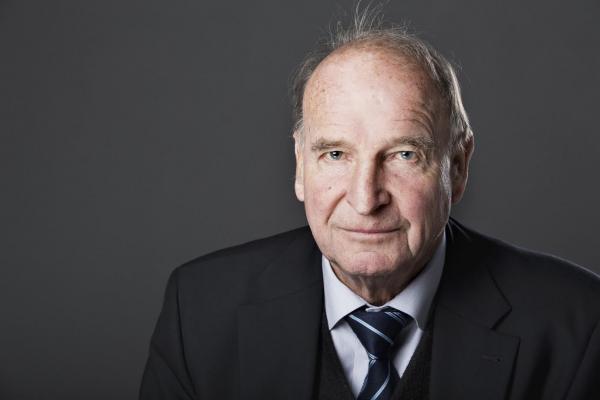PETER ARBENZ
Former vice-president of the association
Reintegration in the country of origin

PETER ARBENZ
Former vice-president of the association
Reintegration in the country of origin
We mourn the loss of Peter Arbenz, our founding member, who passed away in September 2023. With his death, we have lost an extraordinary person. He was a man of great strength, courage and humanity.
Peter Arbenz rose to national prominence when the Federal Council appointed him Delegate for Refugees in 1986. Even then, the issue of asylum was politically highly controversial. A person was needed who was able to shape an asylum policy that was both tough and naively open, who could quickly establish the infrastructure for the procedures, and who could support and build confidence in the Federal Council’s policy. Peter Arbenz was able to do this thanks to his enormous creative power and his organisational and communication skills. This task at the centre of politics was tailor-made for Peter Arbenz, but at the cost of major challenges from various political camps. These may have affected him, but they never embittered him.
He soon realised that refugee movements were only part of the global migration flows that also affected Switzerland, triggered by difficult living conditions and political tensions in the countries of origin. With a keen sense of strategic thinking, he was one of the first to call for a coherent migration policy and an overall view of refugee and migration movements.
He increasingly looked beyond national borders. As a young man, he had worked for an aid organisation in Nepal during a formative period of his life and was therefore familiar with living conditions in the Third World. He was convinced that the issue of migration could not be dealt with at the national level alone, but had to be tackled at the international level. He was therefore a strong advocate of intergovernmental cooperation and was quick to take initiatives to strengthen it. He soon became a well-known and respected figure on the international stage.
While he was initially perceived primarily as a tough manager of a restrictive asylum policy, many gradually came to recognise the great humanity that drove Peter Arbenz. He cared about the people he met, without fear of contact, and whose fate moved him. He was often prepared to seek unconventional solutions on their behalf, and with moral courage to go to the limits of his powers. He also earned the respect of his former adversaries.
It was not surprising, therefore, that years after he had resigned as director of the Refugee Office, he was one of the founders of the Association for Reintegration in the Country of Origin. A dignified return to their country of origin for people who, for whatever reason, had been unable to find a permanent home in Switzerland was a major concern of his. Peter Arbenz had already spoken out in favour of helping returnees many decades ago. Until the last weeks of his life, he was concerned about their fate and supported our organisation’s projects with great commitment. We thank him for his exemplary life’s work.
Walter Schmid

Reintegration in the country of origin
c/o International Social Service – Switzerland
20, av. Ernest-Pictet 1203 Geneva
Switzerland
Phone: +41 22 731 67 00
office@reintegrationproject.ch
www.reintegrationproject.ch
© Copyright 2023 reintegrationproject.ch